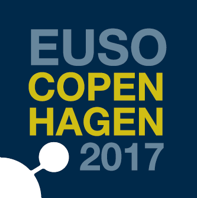“The EUSO highlights new and exciting aspects of the natural sciences. Previous participants tell us that competing in the EUSO represents a tremendous opportunity for scientific development and is a great social experience for young people.”
WHAT IS EUSO?
The European Union Science Olympiad (EUSO) is a team-based science competition for the European Union's youth where they can display their capabilities in natural sciences. EUSO was founded in 2003 where it included only a few nations, but over the years it has expanded so that today almost all countries in the EU are participating in the olympiad. Each participating country sends two three-student teams to the final round, which takes place during one week every year in different countries within the EU.
The two-part competition is spread over two days and the duration of each task is four hours. Each task is a practical activity incorporating elements of biology, chemistry and physics. The tasks are designed to connect the branches of science, provide relevant and inquiry-based challenges, engage all team members, support self-pacing, prompt higher-order and creative thinking, and encourage substantive communication.
This competition differs from other science olympiads in three ways:
1. the participants are 16 years of age or younger on December 31st prior to the competition;
2. it is a team competition;
3. the skills in three areas – biology, chemistry and physics – are tested.
Objectives of the EUSO are:
- to challenge and stimulate gifted science students to develop their talents and to promote their careers as scientists;
- to provide invaluable experience for students who may later take part in the International Science Olympiads;
- for mentors and teachers to offer the opportunity to compare the syllabi and science education systems within the EU member states and share best practices which would help improve science education at national levels;
- to stimulate the active interest of students in the sciences;
- to promote and reward the pursuit of excellence in scientific endeavour;
- to foster a positive and high profile image of science and scientists;
- to encourage the appreciation of the value of science amongst the wider community;
- to convey to students, schools and the community the importance of advanced study and progressive learning in science;
- to exchange ideas and materials about science education among EU states;
- to encourage greater contact and co-operation between secondary school students and teachers from the EU;
- to prepare EU science students for the specific International Science Olympiads.



